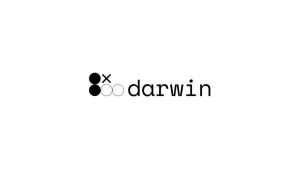$122645.342
At CoinCu News, we give both basic and in-depth articles on the latest news in the cryptocurrency and blockchain sectors.
Mayowa is a seasoned freelance writer specializing in creating compelling, high-converting content across diverse industries.
With extensive experience working with major news outlets, personal blogs, and private clients, he brings a deep understanding of audience engagement and storytelling. His expertise spans SEO optimization, persuasive copywriting, and niche versatility, ensuring content that resonates and delivers results.
Armed with a strong command of the English language and a keen eye for detail, he crafts content that is both impactful and strategically tailored to meet client goals.
News
SharpLink Gaming Surpasses Ethereum Foundation in ETH Holdings
SharpLink Gaming reaches largest ETH holdings globally, surpassing the Ethereum Foundation with 270,000 coins.
Jul
Kenya Launches National Digital Token KDT on Solana Blockchain
Kenya introduces KenyaNDT on Solana, aligning with national digital strategies.
Jul
Hong Kong to Introduce Limited Stablecoin Licenses in Initial Phase
Hong Kong's financial secretary plans to issue limited stablecoin licenses initially, focusing on cross-border payments
Jul
EU Responds to U.S. Tariff Proposal, Talks Continue
EU plans countermeasures to U.S. tariffs; ongoing negotiations emphasize international trade rules.
Jul
EU Extends Suspension of Tariff Countermeasures, Favors Negotiation
European Commission extends tariff countermeasure suspension, seeks US negotiation, impacts traditional markets over cryptocurrencies.
Jul
China Expands Zero Tariff Policy to African Nations
China broadens zero tariff policy to include 53 African nations, enhancing global trade.
Jul
Hong Kong to Implement Stablecoin Ordinance on August 1, 2025
Hong Kong introduces the Stablecoin Ordinance with limited licenses as digital asset ecosystem reshapes.
Jul
Hong Kong Advances Stablecoin Regulations with Korean Collaboration
Hong Kong engages Korean regulators on digital assets, stablecoin discussions during Paul Chan's Seoul visit.
Jul
Czech National Bank Increases Coinbase Holdings in Strategic Investment
Czech National Bank acquires 51,732 Coinbase shares in a strategic move, marking notable investment in
Jul
[tptn_list how_old="7" limit="5" title_length="0" heading="0" show_date="0" ]
[tptn_list how_old="30" limit="5" title_length="0" heading="0" show_date="0" ]






















